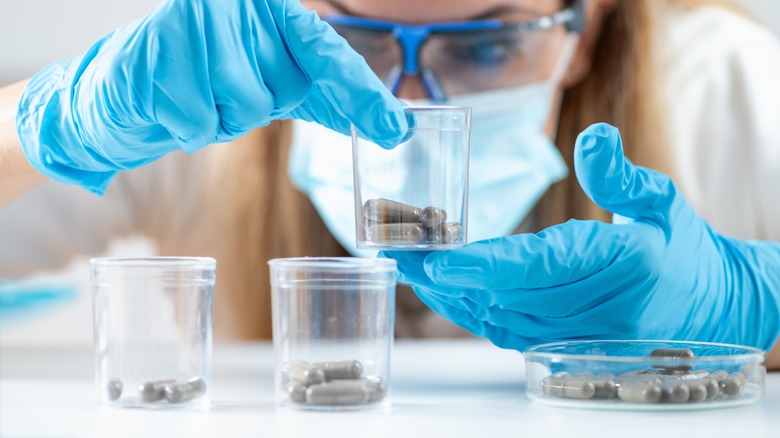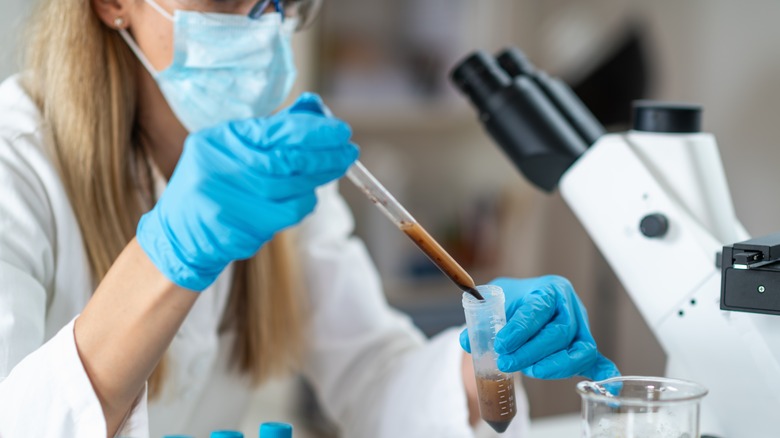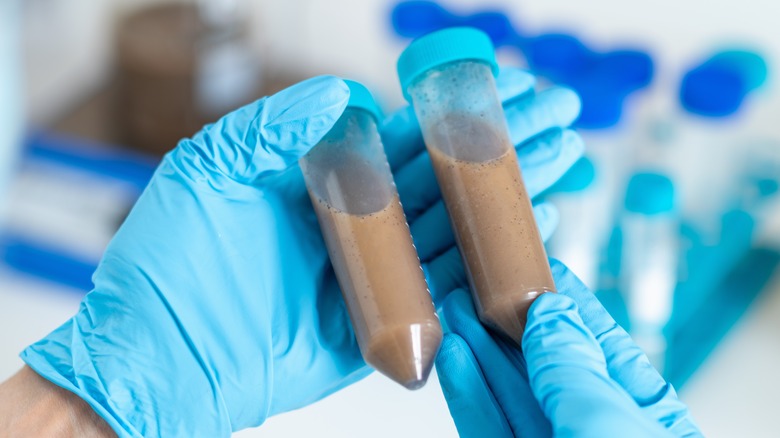There May Be A Good Reason To Store Your Poop For Future Use
Your poop is not something you spend a lot of time looking at. Of course, this may not be the case when your poop has cracks, it smells funny or comes out green. (Yes, that does happen).
But according to some researchers, going one step more than looking at it in a toilet bowl to actually storing it for future use can be good too, at least in terms of your health. The Global Microbiome Conservancy (GMC), founded in 2016 by Mathieu Groussin and Mathilde Poyet, is one such endeavor. It's a project that involves collecting excrement from people across the world in an effort to better understand the gut microbiome — about 100 trillion microorganisms (bacteria, viruses, fungi, and protozoa) that exist in your gastrointestinal tract.
Scientists believe that understanding the variations in gut health based on where people live and grow up could hold clues to understanding a lot of diseases that plague the modern world — like digestive issues, asthma, allergies, obesity, and diabetes. Even your mental health, immune system, sleep, and autoimmune diseases like irritable bowel disease (IBD) are related to your gut health. By the end of 2018, GMC had stored 11,000 microorganism strains from 40 people in seven different countries, per Science.
Storing your poop could also benefit you personally
According to a 2022 opinion piece published in Trends in Molecular Medicine, another good reason to store your poop for future use includes autologous fecal microbiota transplantation (FMT). The concept of fecal transplants — collecting poop from a healthy donor and introducing it into a patient's GI tract via colonoscopy — is not a new one. It's also called heterologous FMT. It's currently done to treat severe bacterial infections in the digestive tract, like Clostridioides difficile, also known as C. diff. The idea is that the microbiome from a healthy gut can somehow bring balance to the gut microbiome in someone who's ill.
Autologous — sample obtained from a person and given to the same person — FMT can be revolutionary when it comes to fighting IBD, asthma, multiple sclerosis, diabetes, heart disease, obesity, and aging, according to the researchers who wrote the paper. You collect samples of your feces when you're young and healthy to be stored for your own use when you're older. Your gut microbiome goes through a lot of different changes in your lifetime based on what you eat and some medications like antibiotics that you may consume. By preserving your poop, as you would with eggs or blood, you're giving your future self options to treat disease, per the scientists.
"For example, in the case of aging, we expect that autologous FMT may be a more powerful therapeutic approach to promote healthy aging of the host than heterologous FMT," shared senior author of the study and associate professor of medicine at Harvard Medical School Yang-Yu Liu (via NBC News).
Saving your poop for later isn't without its complications
Scientists understand that implementing it on a small scale and making it viable on a bigger scale are two different things. For one, more research is needed to come up with guidelines for long-term storage and resuscitation of stool samples. Gathering feces from across the world is also not a simple process.
According to Yang-Yu Liu (via Science Daily), who can afford to store their poop for future use is another problem that will arise. "We do not anticipate that all individuals in our society are willing or able to pay the cost associated with the service of 'rejuvenating' their gut microbiome, in the same way that not all parents pay the cost of cord blood banking for their newborns," shared the associate professor. While science has come up with a potential health benefit to saving your feces without flushing it down the toilet, the business and pricing end of the solution might have to come from entrepreneurs, scientists, and governments working together.
At the very least, this scientific innovation could get you thinking about the value of maintaining a healthy gut (and healthy poop). You may know already that fiber makes you poop. So eating fiber-rich leafy greens is one way to ensure your gut health remains in good shape. Avoiding sugar and highly processed foods, limiting the use of antibiotics (whenever possible), making sure you're getting enough probiotics and prebiotics, reducing red meat consumption, getting enough sleep, and focusing on exercise and mental health are some other expert-recommended tips for a healthy gut, per the Canadian Digestive Health Foundation.



